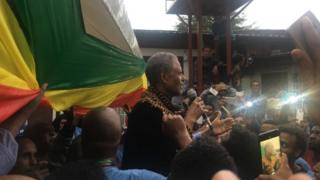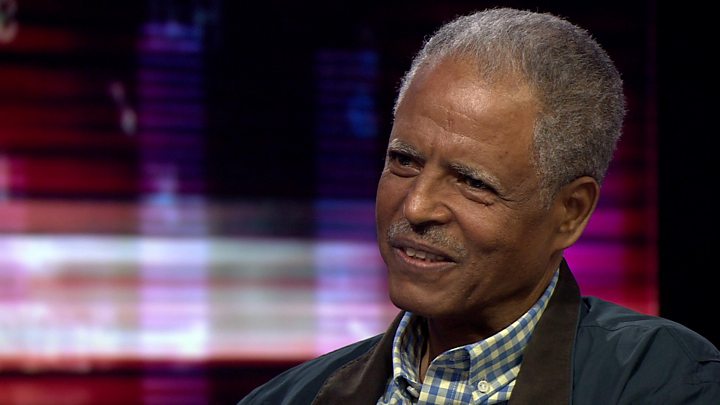 Image copyright
Kalkidan Yibelta
Image copyright
Kalkidan Yibelta
An Ethiopian rebel group has suspended its armed resistance against the government.
The Ginbot 7 movement said Prime Minister Abiy Ahmed's reforms had given them hope that "genuine democracy" may be "a real possibility".
Earlier, the government said it had unblocked 264 websites and TV broadcasters.
Mr Abiy has made numerous changes since coming to office in April, relaxing the state's previously tight grip on power.
Ginbot 7, which is based in neighbouring Eritrea, had been designated a terrorist organisation by previous governments.
Its secretary-general, Andargachew Tsege, was arrested in Yemen in 2014 after being sentenced to death in absentia in 2009 for allegedly plotting a coup.
The Ethiopian government pardoned Mr Tsege on 29 May and he has since returned to the UK, where his family lives.
Mr Tsege recently told the BBC that his release came after Prime Minister Abiy had threatened to resign.

Journalists jailed
In recent years, the country has been riven by protests by the country's two largest ethnic groups - the Oromo and the Amhara.
Demonstrations first spread across the country in 2015 amid calls for political and economic reform and an end to state corruption.
The government was accused of human rights violations in that time - including torture and extrajudicial killing of political dissidents.
US-based television stations, Ethiopian Satellite Television (ESAT) and Oromo Media Network (OMN), were among the outlets barred and charged in absentia for inciting violence and promoting acts of terror by the government, BBC Amharic editor Ashagre Hailu reports.
Many journalists were given prison sentences for stories they had written, while others fled the country.
Ethiopian Prime Minister Hailemariam Desalegn resigned unexpectedly in February, saying he hoped to end years of unrest and political upheaval.
'Free market of ideas'
This environment seems to be changing under Prime Minister Abiy, our correspondent says.
Mr Abiy has announced a flurry of sweeping reforms since taking office in April.
He has pledged to open up the airwaves, even calling on foreign-based opposition TV broadcasters to open offices in Ethiopia.
Fitsum Arega, Prime Minister Abiy Ahmed's chief of staff, announced the unblocking of media platforms on Twitter, saying "freedom of expression is a foundational right".
"A free flow of information is essential for engaged & responsible citizenry. Only a free market of ideas will lead to the truth," he said.
A few weeks ago, charges were dropped against ESAT and OMN.
Mr Abiy has also announced the part-privatisation of state-owned enterprises, is attempting to stabilise Ethiopia's rocky relationship with neighbouring Eritrea, and ended a state of emergency put in place by the previous administration.